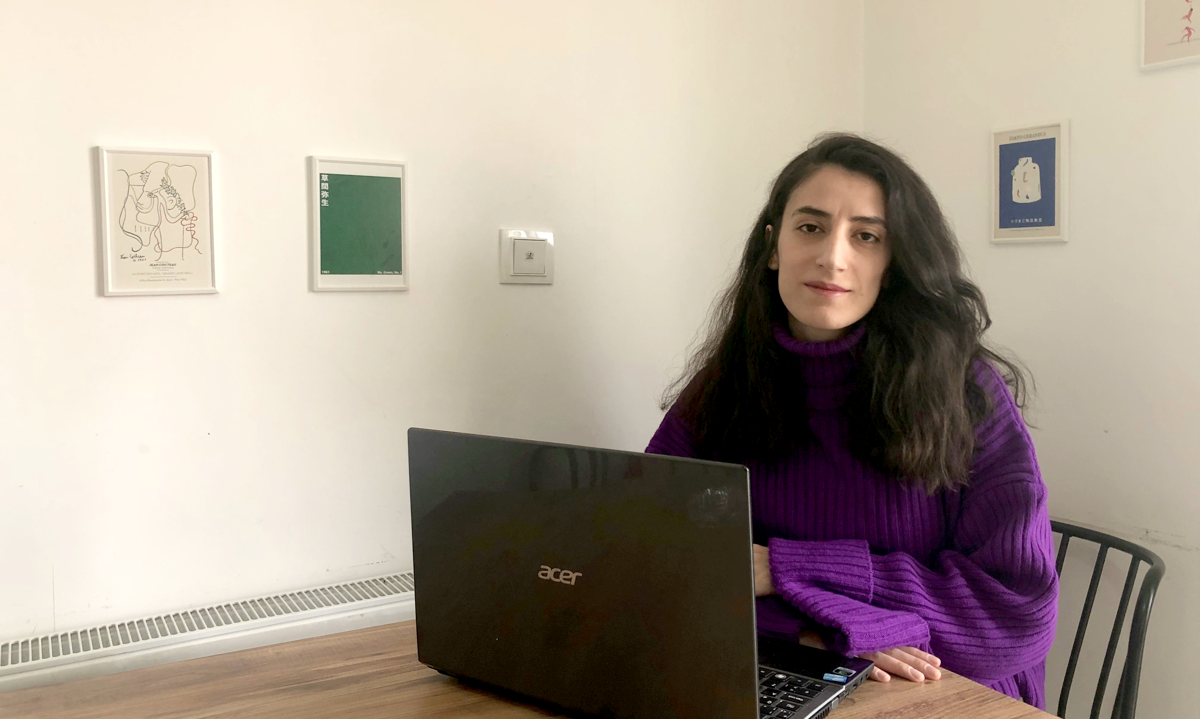In the words of Şerife Kavak: “We need to acknowledge the special needs of women and children to heal their traumas”
Date:

Şerife Kavak, 29, is a psychologist from Diyarbakır. She survived the earthquakes that hit 11 provinces in southeastern Türkiye including her hometown. Kavak volunteers for KAMER Foundation, a leading civil society organization supporting women and girls survivors through a network of psychologists, within a project led by UN Women. She says that witnessing the devastating earthquake affects people deeply, resulting in anxiety and stress, but she stands strong to help women and children in need.
![]()
I was born in Diyarbakır, located in southeastern Türkiye, a city home to different civilizations, faiths, and cultures for ages. Being born and raised here helped me to build my character and select my occupation as a psychologist. I am very interested in exploring how different communities, cultures, and traditions affect the psychology of society.
I got my bachelor’s degree from a university in Mersin, located in southern Türkiye. While I was still studying at university, I worked as a volunteer in a refugee camp hosting mostly women and children from Syria in the Diyarbakır Metropolitan Municipality. In the supervision of a group of psychologists and experts, I worked with children and their families who are affected by conflict and experiencing trauma. After my graduation, I continued working with children who had learning disabilities at a rehabilitation center.
I am currently living in Diyarbakır, one of the provinces affected by the February 6 earthquakes. I am a member of the psychologist’s network established by the KAMER Foundation, a civil society organization in the region, now working with earthquakes survivors. Within KAMER’s “We are here, too” project, we provide free of charge psychological consultations to women.
It is a fact that women and children experience inequalities and hardships differently during natural disasters, wars, and conflicts. In the earthquake areas, I observe that men seem more comfortable when reaching for humanitarian aid compared to women and children. For them, it is harder to access services and receive essential items. Women and girls need hygiene products, sanitary pads, and underwear. Mothers need diapers, and baby formulas for their children. Access to toilets is even harder for women and girls due to hygiene and privacy needs.
When it comes to mental health, it is even harder for women as their psychological well-being tends to be more at-risk during disasters. Based on my observations in the field, women say that being homeless and not being able to create a safe space for their families and children is devastating for them. Children, especially those who lost their families, have lost the feeling of trust. As psychologists, we need to prepare programs based on the special needs of women and children to help them heal their traumas.
I am also a survivor of the earthquakes. My house was damaged. In the neighborhood where I spent my childhood, many houses have been heavily damaged and many more have been evacuated. Witnessing all of this reminds me once again that life could end and you could lose your loved ones in a second. This experience affects people deeply, resulting in anxiety and stress, but it also gives me the strength to move forward and help others in need.
As a psychologist, I believe that we should acknowledge and feel our mourning and emotions after these kind of disasters. Social connections, solidarity and sharing experiences also help us to heal from our traumas. Therefore, I am now here in my hometown, helping women, children, and those who are having difficulties in coping with their feelings and traumas.”
KAMER Foundation’s “We are Here, Too” project is implemented under UN Women’s “Strong Civic Space for Gender Equality” project funded by the European Union.
If you would like to support UN Women’s efforts in the earthquake zone in Türkiye and Syria and help women, girls and their families who are in urgent need, please donate here.